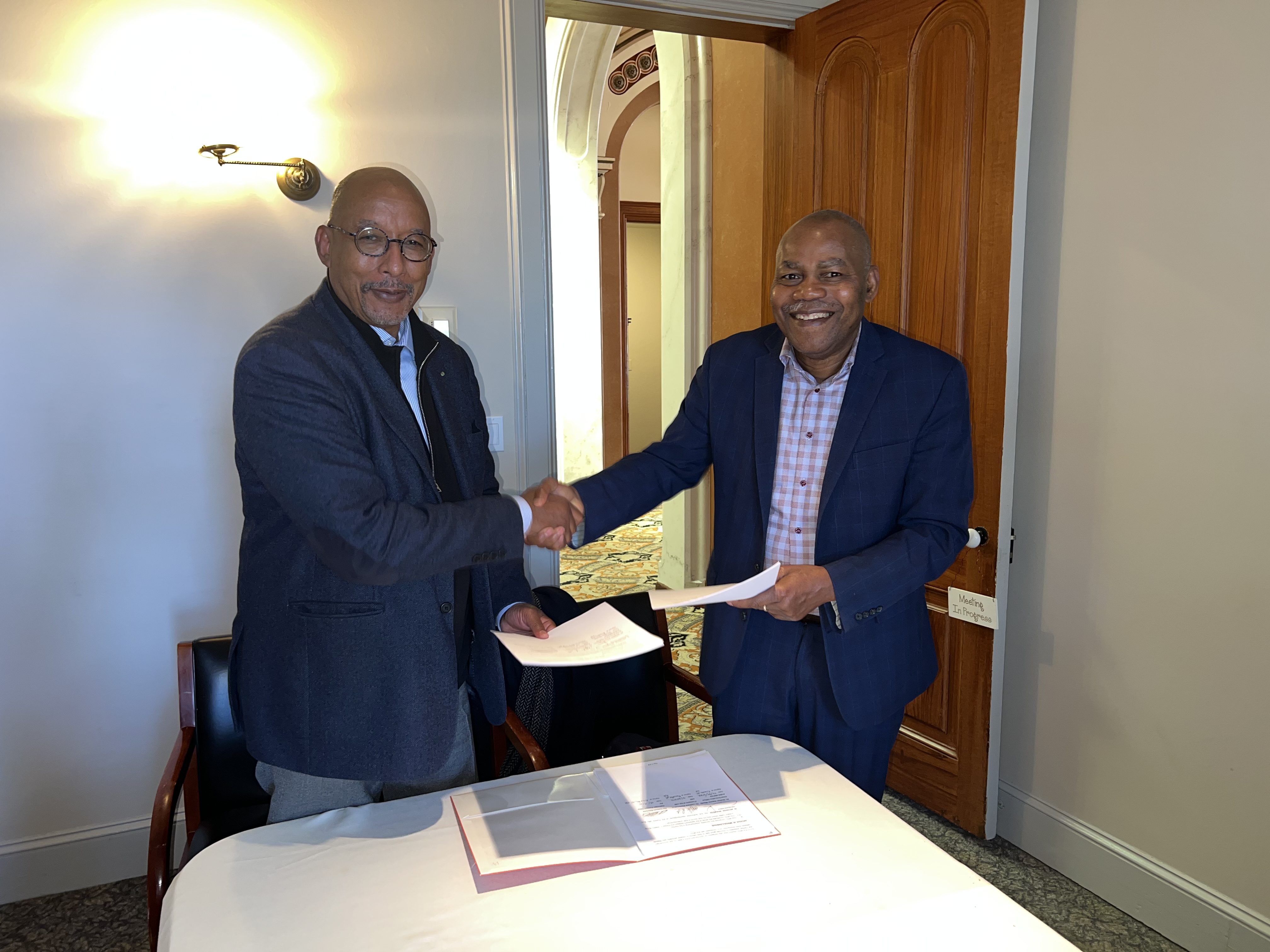

Building Equitable Outcomes and Prosperity in Africa
Within 30 years, Africa will be home to nearly 25% of the global population. Experts argue it could someday become a global power, making it the focus of global development finance. Is there a way for Africa to capitalize on the moment and deliver prosperity to citizens?
This question was the focus of a closed lecture on April 20 at Princeton University, which concluded with the signing of a legal memorandum of understanding between members of the African delegation and Princeton University. The event was organized by Leonard Wantchekon, James Madison Professor of Political Economy and professor of politics and international affairs at the Princeton School of Public and International Affairs (SPIA).
The event was attended by members of the African Union Development Agency (AUDA-NEPAD) and the African School of Economics (ASE), of which Wantchekon serves as president and founded in 2014. Ibrahim Assane Mayaki, chief executive officer of AUDA-NEPAD and former prime minister of Niger, presented a talk, “Africa’s Critical Choices: New Directions for a Pan-African Roadmap to Development.”
“We’re experiencing a new ‘scramble’ for Africa, and development assistance is quickly morphing into new strategic investments from world powers,” Wantchekon said. “Through this partnership, we can explore how Africa can use this trend to its advantage, especially during this time of rapid political and economic transitions.”
“This exceptional collaboration by our colleague Leonard Wantchekon will inform policy debates on development in Africa,” said Amaney Jamal, dean of SPIA. “As SPIA continues to enhance its global footprint, this is a critical partnership.”
Following the event, Wantchekon and officials from AUDA-NEPAD and ASE signed an agreement to work on research and capacity development collaborations in Africa. Together, the organizations will capitalize on each other’s knowledge and generate research focused on education, energy, health, and human capital investment topics.

An African scholar, Wantchekon joined Princeton University in 2011. His research focuses on political economy, development economics, and economic history with a regional focus on Africa. His work is shaped in part by his experiences as a left-wing pro-democracy student activist under a repressive military regime in his native country of Benin from 1976 to 1987.
Since Wantchekon founded the ASE, it has become one of the most distinguished graduate institutions in Africa, hailed for its distinct teaching approach, which blends theory with practice. The AUDA-NEPAD is based in South Africa and is mandated to facilitate and coordinate the implementation of regional and continental priority development programs and projects, and to push for partnerships, resource mobilization, and research and knowledge management.

